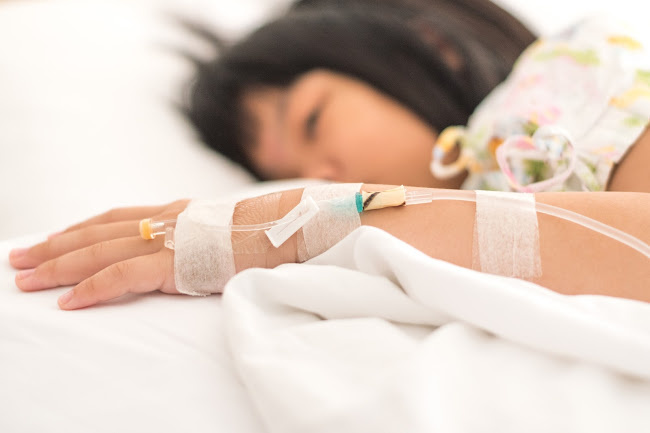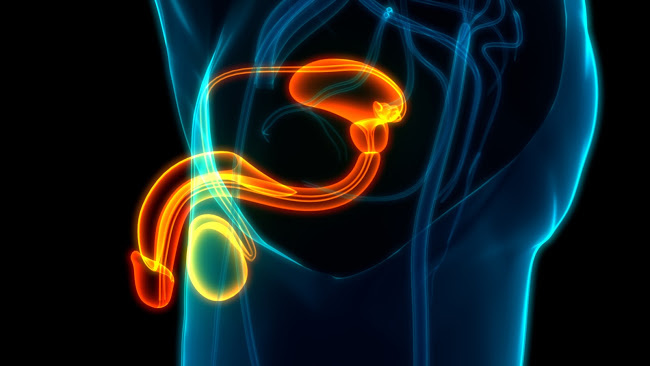
Can childhood cancer survivors have sexual health concerns as adults?

Yes. It’s possible for childhood cancer survivors to experience late effects (issues that occur years after their treatment) that impair sexual function in adulthood.
Cancer treatments – which typically include surgery, chemotherapy, or radiation – can alter a child’s sexual development, even if cancer and treatment did not involve sexual organs. For example, treatment that affects the pituitary gland in the brain could disrupt the production of sex hormones.
A 2020 study published in the Journal of Sexual Medicine found that 20% of female childhood cancer survivors experienced sexual problems, compared to about 11% of a comparison group without a cancer history. Survivors who had had germ cell tumors, kidney tumors, or leukemia were more likely to have sexual difficulties compared to women who had had other types of cancer. The most commonly-reported sexual issues were vaginal dryness, lack of desire, and orgasmic dysfunction
Another study, published in JAMA Oncology in 2017, reported that male childhood cancer survivors were more likely to have erectile dysfunction (ED)as adults than their peers who had not had cancer. Low testosterone, which can cause ED, was another potential concern.
Sexual concerns for adult survivors of childhood cancer may have a variety of causes:
- Hormonal changes. Testosterone and estrogen are two important hormones for sexual development and function. However, cancer treatment can disrupt their production and lead to decreased sexual desire, the development of ED in males, and vaginal dryness in females.
- Nerve damage. Treatments that affect the nervous system could lead to neuropathy and reduced sensation.
- Psychological and emotional issues. Depression, anxiety, and poor body image are common in childhood cancer survivors that can impact sexuality.
- Social changes. A 2017 Cancer study found that some childhood cancer survivors might be less likely to have sexual relationships, especially if their treatment focused on the nervous system.
If you think that past cancer treatment could be linked to sexual issues you’re having now, talk to a healthcare professional.
Resources
- American Society of Clinical Oncology (ASCO) (Cancer.net) - “Late Effects of Childhood Cancer”
(July 2013)
http://www.cancer.net/navigating-cancer-care/children/late-effects-childhood-cancer - The ASCO Post - “Poorer Psychosexual Functioning in Adult Female Survivors of Childhood Cancer”
Stenger, Matthew
(August 21, 2014)
http://www.ascopost.com/ViewNews.aspx?nid=17526 - Cancer - “Psychosexual development and satisfaction in long‐term survivors of childhood cancer: Neurotoxic treatment intensity as a risk indicator”
Lehmann, Vicky, PhD, et al.
(Full-text. First published: February 6, 2017)
https://acsjournals.onlinelibrary.wiley.com/doi/full/10.1002/cncr.30513 - HealthDay - “Most Adult Survivors of Childhood Cancers Enjoy Good Sexual Health”
Preidt, Robert
(February 6, 2017)
https://consumer.healthday.com/cancer-information-5/mis-cancer-news-102/most-adult-survivors-of-childhood-cancers-enjoy-good-sexual-health-719366.html - International Society for Sexual Medicine - “Erectile Dysfunction a Concern for Childhood Cancer Survivors”
(December 9, 2018)
https://www.issm.info/news/sex-health-headlines/erectile-dysfunction-a-concern-for-childhood-cancer-survivors/ - Journal of Clinical Oncology - “Psychosexual Functioning Among Adult Female Survivors of Childhood Cancer: A Report From the Childhood Cancer Survivor Study”
Ford, Jennifer S., et al.
(Abstract. Published online before print: August 11, 2014)
http://jco.ascopubs.org/content/early/2014/08/11/JCO.2013.54.1086.abstract - The Journal of Sexual Medicine - “Psychosexual Functioning of Female Childhood Cancer Survivors: A Report From the St. Jude Lifetime Cohort Study”
Bjornard, Kari L., MD, MPH, et al.
(Full-text. Published: July 25, 2020)
https://www.jsm.jsexmed.org/article/S1743-6095(20)30679-2/fulltext -
“Sexual Function in Childhood Cancer Survivors: A Report from Project REACH”
Bober, Sharon L., PhD, at al.
(Full-text. First published online: May 16, 2013)
http://onlinelibrary.wiley.com/doi/10.1111/jsm.12193/full






